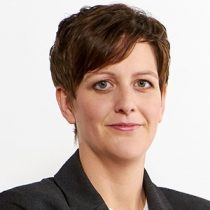The European Work-Life-Balance-Directive (2019/1158) aims at granting fathers and equivalent second parents a paid leave of two weeks in the event of childbirth. Germany, however, did not implement this Directive into German law in time.
The Federal Government already provided a draft bill (Vereinbarkeitsrichtlinienumsetzungsgesetz – VRUG, last update from September 2022). However, it does not reflect all aspects of the Directive. The Federal Government determined that the (existing) provisions in the German Federal Parental Allowance and Parental Leave Act (Bundeselterngeld- und Elternzeitgesetzes - BEEG) were sufficient. The European Commission has a different view. In September 2022, it called on Germany (as well as other member states) to implement the Directive comprehensively. That is pending.
Currently, it is unclear:
- when the Directive will be implemented;
- who will have to pay the remuneration for the leave (possibly similar to the rules for maternity leave);
- whether there will be a need for the father or equivalent second parent to apply for or notify the leave, or whether companies will have to grant the leave anyway;
- whether the implementation into German law will include details on flexible working arrangements such as telework (explicitly addressed in the Directive); and
- how companies shall proceed until the Directive is implemented.
For the time being and in principle, paid leave in the event of childbirth continues to be governed by section 616 of the German Civil Code (Bürgerliches Gesetzbuch – BGB). Accordingly, companies must grant one to two days paid leave. In individual cases, the leave may be even longer. Section 616 BGB may already be interpreted compliant with EU law in the sense of two weeks paid leave. That, however, seems rather unlikely. Details of the remuneration are not yet clear and the member states have flexibility in their implementation of the Directive. Some companies exclude a leave under section 616 BGB in their employment contracts. Whether such exclusion is valid, generally and, in particular, concerning this new leave should be assessed.
Fathers and equivalent second parents remain free to take parental leave in accordance with the existing provisions of the BEEG. It may be even longer than the usual two paternity months (Vätermonate). That would meet the objectives of the Work-Life-Balance-Directive. After all, it aims not only at allowing early bonds between fathers and children. It shall also encourage an equal sharing of responsibilities for childcare between women and men. The latter objective clearly goes beyond two weeks' leave.


